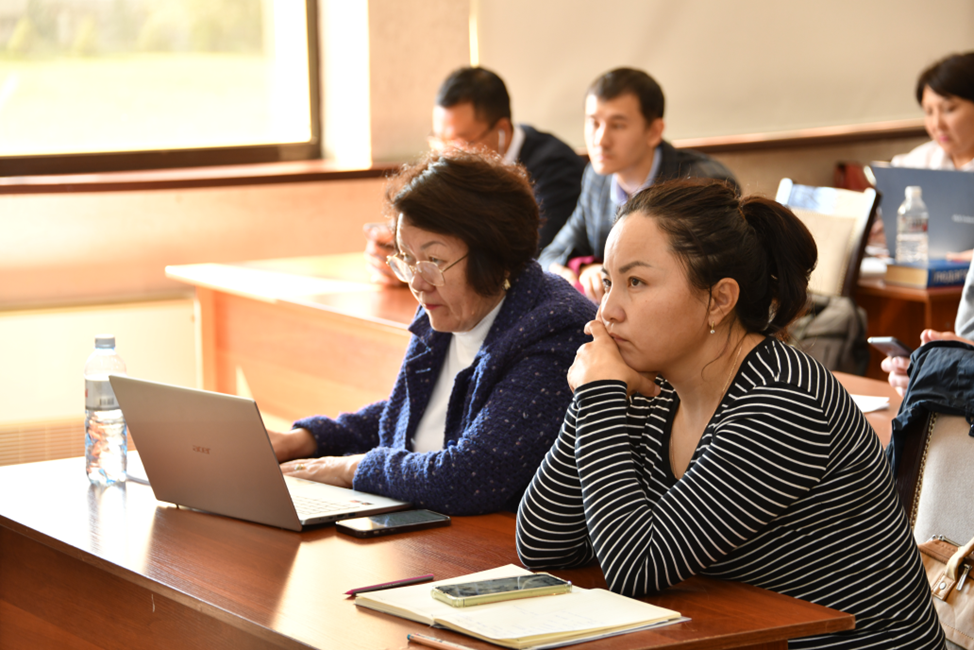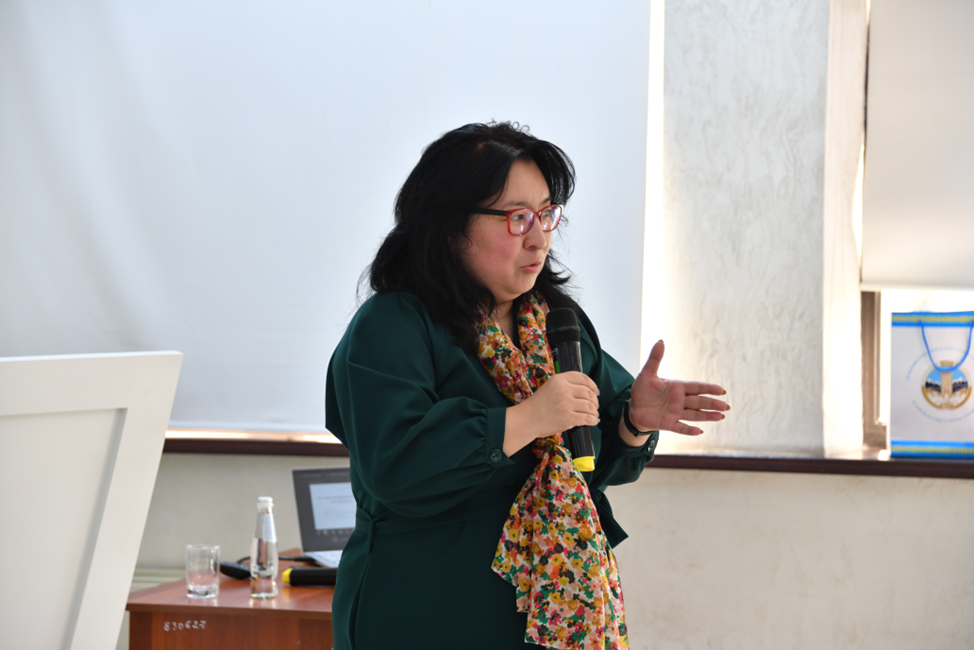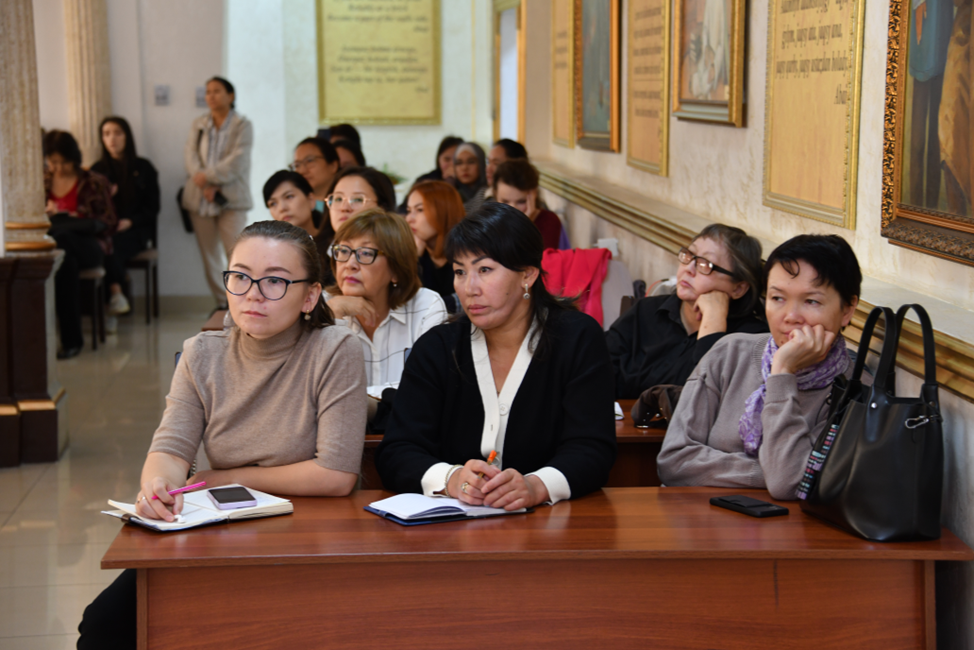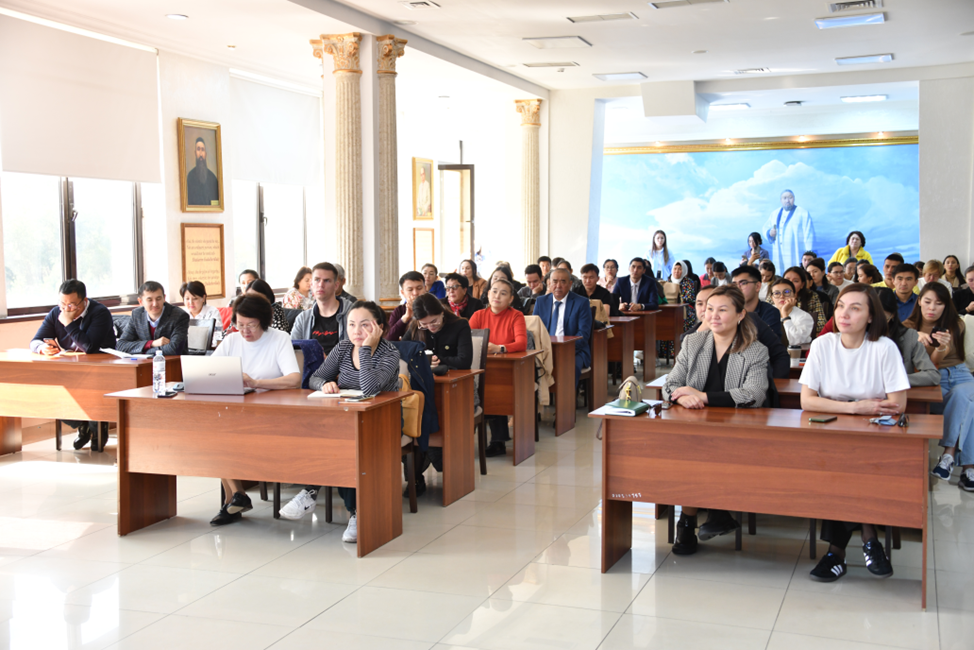The seminar "Elsevier Days", which was organized by the Department of Science and Innovation Activity, started at the Kazakh National University, DKNews.kz reports.
It was attended by faculty, doctoral students and master's students of the university.The seminar of the first day was devoted to such topics as: "Choosing a relevant topic for research and project", "What is LEC approval and how to get it?". Speakers were Elsevier consultant on Central Asia and Azerbaijan, MD, MPH, PhD candidate Rabiga Hojamkul and Director of LEC Center, Associate Professor, Candidate of Medical Sciences Gainel Usatayeva. The main goal of the workshop is to inform and teach young scientists the techniques of independent use of the Scopus database. It should be noted that Elsevier is one of the four largest scientific publishing houses in the world. Scopus and Science Direct are two products of Elsevier that allow scientists to analyze, visualize scientific research.

During the meeting, Elsevier consultant for Central Asia and Azerbaijan, MD, MPH Rabiga Hojamkul familiarized scientists with methods of searching scientific journals for publications, and also told about the possibilities of analytical base Scopus and Science Direct of Elsevier company.
"In KazNU such seminars and trainings are held every six months, depending on requests. The result is always there and people publish their scientific articles. On average, we hold 150 seminars in Kazakhstan and 100 in Central Asia. I hope our listeners will be able to properly use the knowledge and achieve results" Rabiga Hozhamkul

In addition, the participants were informed about ways to search for international grants, rules of application for participation in foreign programs.
"To date, there are 47 international programs through Erasmus, and there are many other competitions where every scientist can apply for a grant" The head of the department of publication activity of KazNU, associate professor, PhD Moldir Isanova

Today's seminar was quite useful and informative for young scientists. In particular, information about the rules and techniques of publishing scientific articles in journals with high impact factor Q1 and Q2 was announced. The participants learned about the new possibilities of searching on Scopus and Science Direct.
"The training showed practical lessons and this year it is in an offline format, which allows us to ask questions to the speaker. I hope that during the three-day seminar we will get a lot of useful information" Saltanat Dzhakubaeva, deputy dean for scientific and innovative activities and international relations of the Faculty of Oriental Studies of KazNU

The seminar will last until September 28, where the following topics will be presented - "Effective Literature Search and Elsevier's flyhacks for writing review articles", "Searching for cooperation and co-directors", "Searching for grant opportunities. Analyzing the market for scientific products", "Finding a journal for publication".







